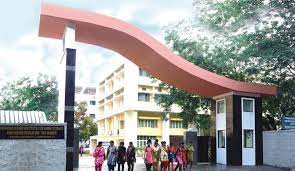
On the side of a corridor in the department of food science and nutrition at Avinashilingam Institute of Home Science and Higher Education for Women in Coimbatore, a machine with a long conveyor belt has been set up for facilitating research on packaging.
The machine was built by a team of researchers at the college, who then used it to make edible and eco-friendly packaging material. “The wrappers can be eaten, “says Pa Raajeswari, associate professor, who headed the project.
In 2018, the team submitted an abstract about a prototype of edible wraps. “The objective of the project was to find a solution for single-use plastics,” says Raajeswari. The government’s department of science and technology funded the project with a grant of ₹40 lakh in 2019.
The basic raw material for developing edible packaging is starch from cereals, millets, hydrocolloids, and agro waste. The wrappers can be eaten or disposed. Through our research, we found the wrappers decompose in 68 days,” says Raajeswari.
She says that they have published details on the nutrient value, sensory evaluation, physicochemical and mechanical properties and biodegradability of the wrappers. While the wrappers are a little more expensive than plastic, they are an alternative for a more sustainable way of life. “The cost can be broughtdown if the product is commercialised,” says Raajeswari.
“The edible packaging cuts down the garbage system and protects the environment,” says Devatha, a scholar carrying out research in making tableware from millets, and part of this team. For its research and innovation, the team won first place and bagged ₹75,000 cash prize at the national-level student research convention held at Gujarat in March. They were also awarded a cash prize of ₹3 lakh in the ‘Enviro solvers hackathon-2023’ conducted by the Tamil Nadu Pollution Control Board.
“Now, we just need to figure out how to commercialise it to bring down the cost. Stakeholders should set up a proper platform to make it a household product,” says B Uthra, a PhD scholar in food science and nutrition who was part of the team.
Avinashilingam set up the edible packaging lab, at a cost of around ₹ 7 lakh, which houses an edible packaging machine and also a combustible cup-making machine which the team developed. The cup-making machine is used to produce edible tableware such as cups, spoons and plates.






